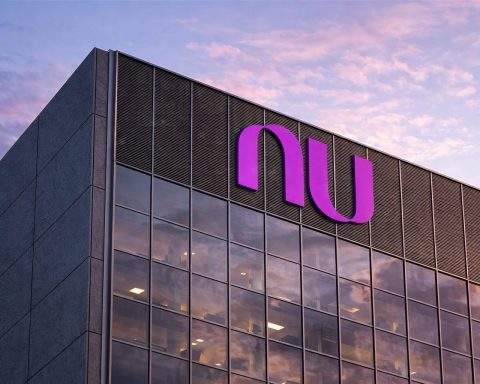- AWS announced an additional $100 million investment into its Generative AI Innovation Center to expand AI engineering capabilities and partner programs.
- AWS launched the Generative AI Partner Innovation Alliance to streamline AI projects from experimentation to production via a global network of system integrators.
- A built-in blue/green deployment feature for Amazon ECS was rolled out to enable seamless switching between old and new container versions.
- A 5-year strategic collaboration between AWS, NatWest Group and Accenture will modernize NatWest’s data, analytics, and AI capabilities for 20 million customers.
- In Thailand, Microsoft Azure is aiding the government’s legal system overhaul with Azure OpenAI Service to translate and compare tens of thousands of Thai legal documents against OECD standards for OECD membership.
- OpenAI selected Google Cloud for AI model training and deployment, with Google Cloud posting $13.6B in Q2 2025 revenue and CapEx up by $10B as OpenAI becomes a Google Cloud client.
- Atos renewed its Google Cloud Managed Service Provider status to continue helping enterprises migrate and run workloads on Google Cloud.
- Oracle signed a $30 billion per-year cloud deal with OpenAI to provide 4.5 gigawatts of new Texas data center capacity under Project Stargate, a move described as three times OpenAI’s annual revenue.
- IBM closed a $6.4 billion acquisition of HashiCorp to deepen its hybrid-cloud and automation portfolio and unveiled the z17 mainframe with on-chip AI acceleration and Quantum System Two.
- Accenture announced it would acquire Maryville Consulting Group to strengthen its technology strategy and TBM practice.
AWS: Doubling Down on Generative AI and Big-Name Partnerships
AWS Invests in AI Innovation Center: Amazon Web Services announced an additional $100 million investment into its Generative AI Innovation Center, a consulting unit that helps enterprises build cloud-based machine learning solutions boardroominsight.com. The center has already completed thousands of customer engagements and will use the new funds to expand AI engineering capabilities and partner programs. An AWS spokesperson noted the launch of a Generative AI Partner Innovation Alliance to bring in top consulting firms, stating it will “streamline the process of taking AI projects from experimentation to production” via a global network of system integrators boardroominsight.com boardroominsight.com. This move essentially doubles AWS’s commitment to enterprise AI services, aiming to meet surging demand as companies face talent shortages in AI development.
ECS Blue/Green Deployments: On the product side, AWS rolled out a built-in blue/green deployment feature for Amazon ECS to simplify safer app releases. This capability allows seamless switching between old and new versions of containerized applications, helping developers “ship faster with confidence” when updating services x.com. It underscores AWS’s focus on cloud infrastructure reliability even as it pushes into new AI offerings.
NatWest Collaboration for Cloud & AI: In the financial sector, AWS entered a 5-year strategic collaboration with NatWest Group (alongside Accenture) to modernize the UK bank’s data, analytics, and AI capabilities newsroom.accenture.com. The partnership will leverage AWS’s cloud and machine learning services to deliver personalized banking experiences for 20 million customers. “NatWest is working with AWS and Accenture to bring together banking data to better serve customers… [their] AI-enabled platform will deliver the agility, security, and reliability needed to deepen customer relationships and drive growth,” said Matt Garman, CEO of AWS, about the deal newsroom.accenture.com. This exemplifies how cloud providers are teaming with industry leaders to infuse AI and cloud at the core of business transformations.
Microsoft Azure: AI Projects and Global Initiatives
National AI Projects: Microsoft Azure continued to secure high-profile use cases of its cloud AI services. In Thailand, Microsoft is aiding the government’s legal system overhaul using Azure’s AI. A new platform built on Azure OpenAI Service is translating and comparing tens of thousands of Thai legal documents against OECD standards to support Thailand’s bid for OECD membership cloudwars.com. This project showcases Azure’s capabilities in natural language processing and demonstrates how countries are leveraging cloud AI for large-scale digital transformation in the public sector.
Hybrid Cloud and AI Emphasis: While no major Azure service launches were reported these two days, Microsoft’s broader strategy remains on integrating AI across its cloud offerings. (Notably, Microsoft’s upcoming FY2025 Q4 earnings are highly anticipated given strong Azure growth, though results will post after this roundup’s window.) Azure’s momentum includes continued rollout of AI “Copilot” features across the Microsoft ecosystem and new industry collaborations. For instance, Azure’s cloud infrastructure was highlighted as key to a recent healthcare AI partnership to develop medical imaging “copilot” applications for radiology, building on Azure’s secure AI platform news.microsoft.com news.microsoft.com. Overall, Microsoft is blending its cloud with AI services to solve complex real-world problems, from healthcare to legal reform.
Google Cloud: Rivalry Yields Surprising Alliances
OpenAI Chooses Google Cloud: In a stunning example of “coopetition,” Google confirmed a new cloud partnership with OpenAI – one of its chief rivals in generative AI. Alphabet CEO Sundar Pichai acknowledged during Google’s Q2 earnings call that Google Cloud will support OpenAI’s AI model training and deployment needs theaiinsider.tech. This comes as Google significantly ramps up its infrastructure spending (adding $10 billion in CapEx this year) to scale AI capacity. In Q2 2025, Google Cloud revenue hit $13.6 billion, boosted by major AI customers such as Anthropic, World Labs, and now OpenAI theaiinsider.tech. Despite competing in AI research, OpenAI’s addition as a Google Cloud client underscores how “ongoing GPU shortages and [the] need for expanded compute” are driving unusual alliances in the cloud market theaiinsider.tech. Google’s trove of NVIDIA GPUs and custom TPUs makes it an attractive partner to help train the very AI models that challenge Google’s own products – blurring lines between ally and adversary.
Atos Renews Google Cloud MSP Status: In the cloud services ecosystem, French tech firm Atos announced it has been renewed as a Google Cloud Managed Service Provider. Atos will continue to help enterprises migrate and run workloads on Google Cloud, highlighting GCP’s commitment to its global partner network atos.net. The renewal (publicly announced July 23) signals ongoing cloud transformation efforts among traditional IT providers and their clients. It also suggests Google’s enterprise push is yielding results through partners, even as it pursues marquee AI deals directly.
Oracle Cloud: Lands a $30 Billion AI Infrastructure Deal
OpenAI’s $30B-Per-Year Bet on Oracle: Oracle made headlines as OpenAI confirmed it is the mystery client behind Oracle’s massive $30 billion/year cloud deal theaiinsider.tech. OpenAI CEO Sam Altman (via an X post and company blog) acknowledged a multiyear agreement for Oracle to provide 4.5 gigawatts of new data center capacity to power OpenAI’s expanding AI workloads theaiinsider.tech. Codenamed “Project Stargate,” this initiative – first hinted at in Oracle’s SEC filings – will construct huge AI supercomputing hubs in Texas. The unprecedented scale of the contract (three times OpenAI’s own annual revenue) marks a turning point for Oracle, instantly positioning it as a top player in AI cloud infrastructure theaiinsider.tech. Industry observers noted that execution will depend on massive power and construction efforts, but if realized, it “signals a new phase in hyperscale AI infrastructure investment” driven by cloud providers theaiinsider.tech. Oracle shares surged on the prospect of hosting one of the world’s most demanding AI workloads, validating Oracle Cloud’s strategy of focusing on high-performance, enterprise-oriented infrastructure.
Oracle Denies Cloud Breach Allegations: Not all news was positive – Oracle spent the week fending off security scare headlines. A hacker had claimed to steal data on 6 million Oracle Cloud users by exploiting an SSO vulnerability, even posting proof on an Oracle server techcrunch.com. Oracle strongly denied any breach of its cloud platform, insisting that no customer data was compromised techcrunch.com. However, cybersecurity experts remain skeptical. “Oracle are attempting to wordsmith statements… This is not okay,” wrote security researcher Kevin Beaumont, who urged Oracle to “openly and publicly communicate what happened… or customers should start stepping off” techcrunch.com. The controversy, stemming from a March incident but still unfolding, put a spotlight on cloud security transparency. Oracle’s handling of the situation will be watched closely by the enterprise clients it’s now courting with large-scale AI deals.
IBM Cloud: Hybrid Momentum and a $6.4 Billion Acquisition
Strong Q2 with Hybrid Cloud & AI Growth: IBM’s quarterly earnings (released July 23) highlighted that its pivot to hybrid cloud and AI is paying off. CEO Arvind Krishna reported IBM’s generative AI and data platform business has reached $7.5 billion in revenue since inception, with accelerating uptake each quarter fierce-network.com. “Our strategy remains focused – hybrid cloud and artificial intelligence,” Krishna told analysts, emphasizing IBM’s strength in “client trust, open platforms, and deep domain expertise” as key to its growth fierce-network.com. In Q2, IBM’s overall revenue rose 8% year-over-year (5% in constant currency) fierce-network.com. Notably, Red Hat’s hybrid cloud software segment grew 16%, and IBM’s infrastructure unit jumped 14%, buoyed by new AI-capable hardware launches fierce-network.com. IBM unveiled the z17 mainframe with on-chip AI acceleration and its Quantum System Two, underscoring an effort to infuse AI into enterprise IT systems fierce-network.com. Analysts are optimistic that IBM’s focus on AI and automation will sustain its momentum. “I don’t think we’ve seen the full impact of IBM’s AI across all their offerings yet… The continued strong performance of Red Hat… indicates their hybrid cloud strategy is sound,” said Roy Chua of AvidThink, adding that IBM’s upcoming $6.4 billion HashiCorp acquisition will boost its cloud automation capabilities fierce-network.com.
IBM Finalizes HashiCorp Deal:IBM closed its $6.4 billion acquisition of HashiCorp, the company behind the popular Terraform cloud infrastructure toolset techcrunch.com. Regulators gave the final green light in late July, about 10 months after IBM first announced the deal. HashiCorp’s Terraform technology helps automate the provisioning of infrastructure across on-premises and multiple clouds techcrunch.com – a natural fit for IBM’s hybrid-cloud portfolio. Big Blue signaled it will integrate HashiCorp’s offerings deeply: “With this acquisition, IBM is committed to invest in and grow HashiCorp’s capabilities… Our aim is to infuse HashiCorp technology in every data center,” said IBM Senior VP Rob Thomas techcrunch.com. By bringing HashiCorp’s developer community and multi-cloud tools into the fold, IBM solidifies its position in enterprise DevOps and cloud management. The HashiCorp buy builds on IBM’s other sizeable cloud deals (like Red Hat in 2019 and Apptio in 2023) and reinforces its bet that hybrid cloud, bolstered by AI automation, will drive the next era of IT modernization techcrunch.com.
Hybrid and Edge Cloud Developments
Energy Sector Edge AI: Major strides were made in edge computing for industrial and remote environments. Oilfield services giant SLB (formerly Schlumberger) announced a collaboration with edge platform startup Zededa to deploy AI at the rugged edge of energy operations edgeir.com. SLB will integrate Zededa’s cloud-native edge management software into its “Agora” platform for field sites, enabling real-time data analytics in remote oil & gas locations with spotty connectivity edgeir.com. “SLB is committed to digital transformation… We’re excited to develop AI-driven solutions that empower the global energy sector with advanced data insights,” said Zededa CEO Said Ouissal of the partnership edgeir.com. The edge AI system will tackle challenges like intermittent networks and limited on-site IT support by using an open, secure architecture to manage devices at scale. This deal underscores how edge cloud deployments are being embraced to bring machine learning closer to where data is generated – in this case improving safety and efficiency in oil and gas operations.
Edge Security and Integration: Meanwhile, Scale Computing, a provider of edge-focused hyperconverged infrastructure, teamed up with security firm Bitdefender to simplify cybersecurity at the edge. The partnership, announced July 24, will bake Bitdefender’s threat prevention into Scale’s edge computing stack, addressing the growing complexity of securing distributed edge sites edgeir.com. As enterprises extend cloud workloads to factories, retail stores, and branch offices, there’s demand for turnkey solutions to manage and protect these far-flung deployments. Similarly, networking stalwart Cisco joined forces with AI chip startup SiMa.ai to deliver real-time AI at the industrial edge, integrating SiMa’s edge AI platform with Cisco’s rugged switches for manufacturing and defense use cases edgeir.com. These moves show the industry coalescing around hybrid cloud-edge models, where traditional cloud players, hardware vendors, and software startups collaborate to push compute power and intelligence out of the data center and closer to end users and machines.
SaaS and Cloud Software Innovations
AI + SaaS Security Platform: In the software-as-a-service arena, startups are innovating to help companies manage the explosion of SaaS apps and AI integrations. Vorlon, a venture-backed security startup, launched the industry’s first unified SaaS and AI security platform siliconangle.com. With enterprises now using hundreds of cloud apps (and many adopting AI copilots and automation bots), Vorlon’s platform gives IT teams a consolidated view of all data flows between SaaS services and AI tools. It can automatically discover “shadow AI” usage – unsanctioned bots or integrations operating outside official channels – and map sensitive data movements to identify risks siliconangle.com siliconangle.com. Key features include real-time monitoring of every identity, API call, and account linking these systems, plus AI-driven anomaly detection to flag unusual access patterns siliconangle.com. “In a world where every app, every user, and now every AI agent can touch your most sensitive data, security can’t be an afterthought,” said Vorlon co-founder and CEO Amir Khayat, explaining the need for a unified approach. Vorlon’s solution lets business leaders “unleash the power of AI and SaaS confidently and responsibly” by maintaining granular control and compliance visibility siliconangle.com. This launch highlights a new wave of SaaS innovations focused on managing complexity in the cloud era – especially as AI embeds itself into everyday software workflows.
SaaS Growth and Recognition: Other SaaS providers also made news. VCTI, a broadband network SaaS company, reported strong mid-year growth as it helps telecom clients modernize via cloud software sg.finance.yahoo.com. And in awards news, niche players gained visibility – e.g. Rentec Direct, a property management SaaS, was named among the world’s top software innovators in the 2025 SaaS Awards business-review.eu. While these are smaller milestones, they reflect the vibrancy of the SaaS market, where even specialized cloud applications are garnering global recognition. Across the board, SaaS firms are rapidly adding AI features to their offerings. (One trend report this week identified “AI agents” as a top new feature that SaaS products are incorporating to stay competitive mindset.ai.) From enhanced security to AI-driven analytics, the past 48 hours showed that SaaS companies are evolving their cloud software to offer smarter, more integrated and secure experiences for enterprise customers.
Cloud Infrastructure and AI Compute Advances
Hyperscalers Scale Up for AI: The period saw an arms race in cloud infrastructure to support ever-larger AI models. Aside from the Oracle–OpenAI pact, there were reports that OpenAI expanded its tie-up with GPU cloud provider CoreWeave via a new deal worth up to $4 billion fortune.com. CoreWeave, a specialized cloud for AI workloads, will supply additional capacity to OpenAI, alleviating pressure on its primary backer Microsoft. These mega-deals indicate that providing massive GPU-rich infrastructure has become a multi-cloud effort – no single provider can easily meet the exploding compute needs of frontier AI models. Cloud giants are responding by pouring billions into data centers and hardware. Google, for example, is adding data center capacity globally and highlighted that it increased capital expenditures by $10 billion to boost AI and cloud infrastructure this year theaiinsider.tech. Amazon, too, has been investing heavily in custom AI chips (Trainium and Inferentia) and just raised the limit on its Kubernetes service to 100,000 containers per cluster to support ultra-scale AI training jobs aws.amazon.com. The past two days’ news makes clear that the future of cloud computing is intertwined with AI at scale: winning cloud contracts increasingly means delivering unprecedented levels of compute, network, and power. As one industry analyst put it, “It’s a tectonic change – it upends how software is built and how we interact with software”, requiring reimagined cloud architectures to handle the workload aboutamazon.com.
New Data Centers and Chips: In tandem, we’re seeing infrastructure innovation from silicon to server racks. IBM’s new z17 mainframe – introduced this month – exemplifies hardware designed for the AI era, with on-chip acceleration to run AI models directly on enterprise data fierce-network.com. And chipmakers are making strategic moves: GlobalFoundries announced it’s acquiring processor designer MIPS to bolster its portfolio for edge AI and IoT chips edgeir.com. Meanwhile, data center builders are busy: projects like the one in Corpus Christi, Texas, where two new edge data centers were announced edgeir.com, show how cloud infrastructure is extending closer to users to reduce latency. Finally, the Idaho National Laboratory revealed it’s tapping AWS cloud and AI services to accelerate nuclear energy research inl.gov – an example of high-performance cloud computing empowering scientific and engineering breakthroughs. In short, the cloud of 2025 is rapidly evolving: ever more distributed, powerful, and specialized to meet the demands of artificial intelligence and real-time processing.
Big Deals, Mergers and Funding in the Cloud Ecosystem
Accenture’s Cloud Consulting Acquisition: The flurry of corporate activity continued with consulting giant Accenture agreeing to acquire Maryville Consulting Group (announced July 23) to strengthen its technology strategy and TBM (Technology Business Management) practice newsroom.accenture.com. Maryville is a boutique firm (100+ professionals) known for guiding enterprises on product-centric IT and value-based tech spending. By folding Maryville into its fold, Accenture aims to better help clients align cloud and IT investments with business outcomes newsroom.accenture.com newsroom.accenture.com. The deal underscores how demand for cloud and digital transformation advice remains high, prompting consolidation in the cloud professional services space. It also reflects Accenture’s aggressive M&A strategy this year as it expands cloud, AI, and cybersecurity offerings.
Funding Rounds for Cloud Startups: Investors are still betting big on cloud and AI startups. Delve, a Silicon Valley startup automating compliance via AI, announced a $32 million Series A funding at a $300 million valuation theaiinsider.tech. Delve’s platform uses domain-specific AI agents to handle regulatory audits (HIPAA, SOC 2, GDPR, etc.), eliminating hundreds of hours of manual prep by autonomously gathering evidence and monitoring compliance in real time theaiinsider.tech. Since pivoting from healthcare to broader enterprise compliance, Delve has scaled to 500+ customers in under two years, positioning itself as “the infrastructure layer for modern compliance in the AI era,” according to its founders theaiinsider.tech. The new funding (led by Insight Partners) will fuel expansion into adjacent areas like risk and governance, riding the wave of enterprises seeking AI-driven solutions for back-office processes. In another notable raise, ValGenesis secured $16 million to grow its AI-driven validation software for life sciences theaiinsider.tech, and IntuigenceAI snagged $10 million for its AI engineer platform siliconangle.com. These deals show venture capital flowing robustly into cloud software niches – especially those harnessing AI – even in mid-2025.
Cloud Market Shake-Ups: The past 48 hours also saw Waystar announce a deal to acquire Iodine Software, a healthcare AI and cloud analytics firm, to bolster its revenue cycle management offerings (in a call with investors on July 23) finance.yahoo.com. And industry reports highlighted a surge in ultra-large “unicorn” startups in the cloud and AI domain – at least 17 companies valued over $5 billion emerged in the first half of 2025 news.crunchbase.com. M&A analysts suggest more consolidation is on the horizon as legacy tech firms race to add AI/cloud capabilities and cash-rich cloud providers eye strategic tuck-in acquisitions. With cloud market growth still robust (a GlobeNewswire report projects the global cloud market to reach $5.15 trillion by 2034 globenewswire.com), we can expect an ongoing drumbeat of merger deals, partnership tie-ups, and funding rounds. Each is aimed at staking a claim in an ever-expanding cloud ecosystem that now spans from core data centers to edge devices, and from SaaS apps to AI supercomputers.
Sources: The information in this roundup is drawn from a range of press releases, official blog posts, and news analyses published on July 23–24, 2025. Key sources include AWS and Accenture newsrooms newsroom.accenture.com newsroom.accenture.com, cloud provider blogs aws.amazon.com theaiinsider.tech, industry outlets like Fierce and SiliconANGLE fierce-network.com siliconangle.com, and reputable reporting from AI Insider, Cloud Wars, and Crunchbase News theaiinsider.tech cloudwars.com boardroominsight.com. Each link in the text points to the original source for further details. This period’s developments make clear that the cloud computing battle is intensifying on all fronts – from AI alliances and edge innovation to the boardroom maneuvers shaping the future of the cloud. Cloud giants and upstarts alike are racing to deliver the next generation of tech capabilities, and as these two days show, the stakes (and investments) have never been higher.









